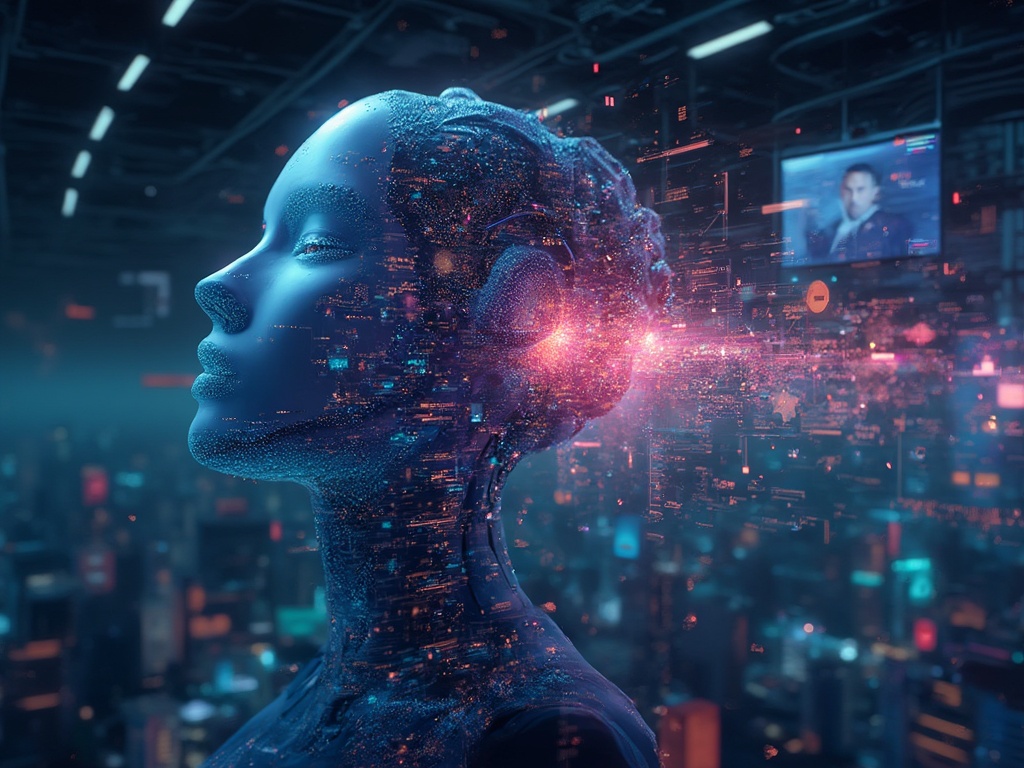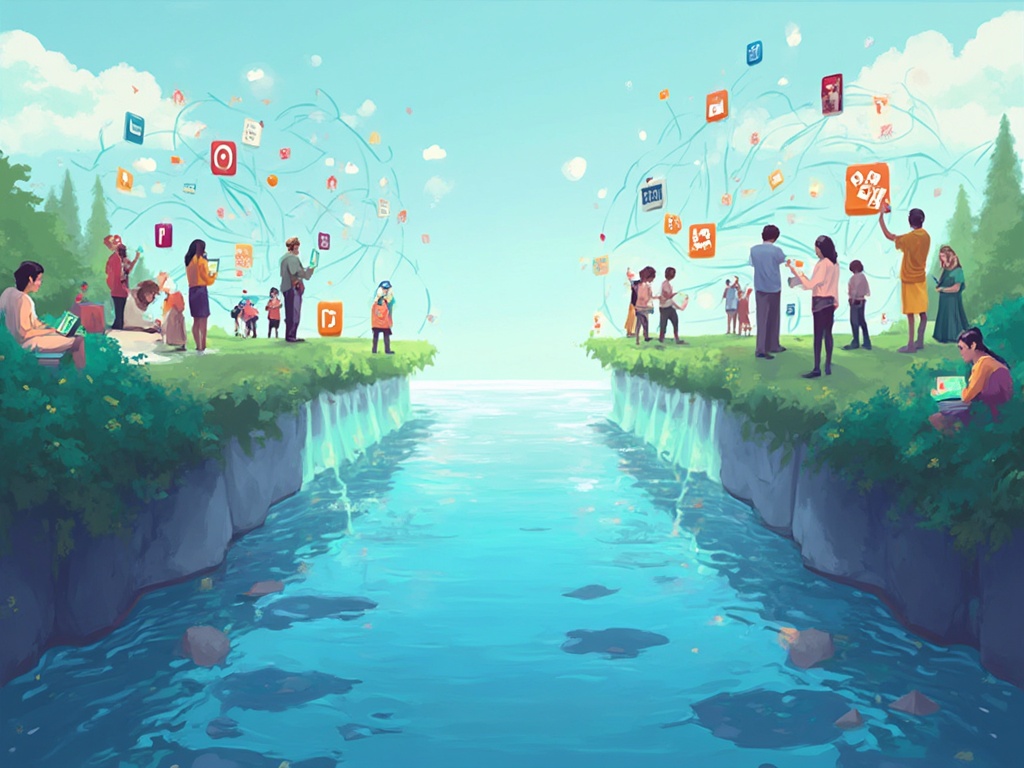
Remember the good old days when you had to actually click buttons to make things happen on your computer? Well, those days are numbered, my friends. Welcome to the brave new world of “The Evolving User Interface,” where your screen might just know what you want before you do. It’s like having a digital psychic at your fingertips, minus the crystal ball and questionable fashion choices.
Table of Contents
What’s All This Fuss About Evolving UIs?

So, you might be wondering, “What’s the big deal? My interface works just fine, thank you very much.” Well, buckle up, buttercup, because we’re about to dive into the world of user interfaces that are smarter than your average toaster.
The Evolving User Interface is basically a fancy way of saying that your computer’s screen is getting a PhD in “You-ology.” It’s using artificial intelligence (AI) to figure out what you need, when you need it, and how you like your digital coffee served. Gone are the days of hunting through endless menus to find that one obscure feature you use once in a blue moon. Your new AI-powered interface is here to save the day – and maybe make you feel a little inadequate in the process.
How Does This Magic Work?
Now, I know what you’re thinking: “Is my computer going to grow a brain and start judging my search history?” Not quite, but close. Here’s how this digital sorcery works:
- Predictive Analytics: Your interface is basically stalking you, but in a totally non-creepy way. It’s watching how you use your device, what you click on, and probably judging your taste in memes. All this data helps it predict what you might want to do next.
- Real-time Reconfiguration: Based on its creepy-but-helpful observations, your interface will start moving things around. That button you never use? Sayonara! It’s been replaced by that feature you’re always hunting for. It’s like your screen is playing Tetris, but with your sanity at stake.
- Personalized Component Generation: Imagine if your interface could spawn new buttons or widgets out of thin air, tailored just for you. Well, that’s exactly what’s happening. It’s like your screen is a digital genie, granting wishes you didn’t even know you had.
- Context-aware Functionality: Your evolving UI is also a bit of a know-it-all. It takes into account things like your location, the time of day, and probably your zodiac sign to figure out what you might need. Checking the weather before every meeting? Boom! There’s a weather widget right next to your calendar.
The Nitty-Gritty: How It’s Built
Now, let’s get a bit technical, but I promise to keep it less boring than your high school math class. The Evolving UI is built on a few key components:
- User Modeling Module: This is like a digital version of your therapist, constantly analyzing your behavior and building a profile of your likes, dislikes, and quirks.
- Context Analysis Engine: Think of this as the nosy neighbor of the digital world, always peeking out the window to see what’s going on around you.
- UI Generation System: This is where the magic happens. It takes all that stalker-like data and turns it into an interface that’s tailor-made for you.
- Feedback Loop: Because even AI needs a performance review now and then. This system learns from your interactions and adjusts accordingly.
To give you a taste of how this might look in code (don’t worry, I won’t make you write any), here’s a simplified example:
python
import random
class UIComponent:
def render(self):
pass
class WeatherWidget(UIComponent):
def render(self):
return “Weather Widget (Because you’re obsessed with knowing if it’s going to rain)”
class CalendarWidget(UIComponent):
def render(self):
return “Calendar Widget (To remind you of all those meetings you’d rather skip)”
class NewsWidget(UIComponent):
def render(self):
return “News Widget (For your daily dose of existential dread)”
class UserModel:
def __init__(self):
self.preferences = {
“weather_check_frequency”: random.random(),
“calendar_use_frequency”: random.random(),
“news_read_frequency”: random.random()
}
class EvolvingUI:
def __init__(self):
self.user_model = UserModel()
self.available_components = [WeatherWidget(), CalendarWidget(), NewsWidget()]
def generate_interface(self):
threshold = 0.5
selected_components = []
if self.user_model.preferences[“weather_check_frequency”] > threshold:
selected_components.append(self.available_components[0])
if self.user_model.preferences[“calendar_use_frequency”] > threshold:
selected_components.append(self.available_components[1])
if self.user_model.preferences[“news_read_frequency”] > threshold:
selected_components.append(self.available_components[2])
return selected_components
def render_interface(self):
components = self.generate_interface()
return ” | “.join([component.render() for component in components])
# Let’s see what kind of interface you get
ui = EvolvingUI()
print(ui.render_interface())
This code is basically creating a digital version of you, deciding what you like based on some random numbers (because let’s face it, sometimes our preferences feel pretty random), and then spitting out an interface that it thinks will make you happy. Or at least, less likely to throw your device out the window.
The Good, The Bad, and The “Oh No, My Computer Knows Too Much”

Now, let’s talk about the elephant in the room: Is this evolving UI thing actually good for us, or are we one step closer to being replaced by our toasters?
The Good Stuff
- Efficiency on Steroids: Imagine never having to dig through nested menus again. Your most-used features are always right where you need them. It’s like your interface is finally paying attention to you, unlike your cat.
- Personalization Galore: Your interface becomes as unique as your fingerprint. Or your browser history, whichever is more distinctive.
- Reduced Learning Curve: New users can get up to speed faster because the interface adapts to their level of expertise. It’s like having training wheels that magically disappear when you’re ready.
- Accessibility Boost: These smart interfaces can adapt to users with different abilities, making technology more inclusive. Finally, something we can all feel good about.
The Not-So-Good Stuff
- Privacy Concerns: Your interface knows you better than you know yourself. Feeling paranoid yet?
- Over-Reliance on AI: What happens when the AI gets it wrong? You might end up with a weather widget when you’re trying to write a breakup text. Awkward.
- Loss of Control: Some users might feel like they’re no longer in the driver’s seat of their own devices. It’s like backseat driving, but with algorithms.
- The Uncanny Valley of UIs: An interface that’s too smart might just freak people out. There’s a fine line between helpful and “Get out of my head!”
The Future: Your Interface, Your Frenemy
As we hurtle towards a future where our devices might know us better than our own mothers, it’s worth pondering what this means for us mere mortals. Will we become lazy, relying on our AI-powered interfaces to do all the thinking for us? Or will this free us up to focus on more important things, like finally learning how to fold a fitted sheet?
One thing’s for sure: the way we interact with technology is changing faster than you can say “Hey Siri, what’s the meaning of life?” The Evolving User Interface is just the tip of the iceberg. Soon, we might be talking to our computers, gesturing wildly in the air to control our smart homes, or even thinking commands directly to our devices. It’s enough to make you wonder if we’re evolving alongside our interfaces.
Embracing the Change (Or Hide Under Your Desk)
The Evolving User Interface is here to stay, whether we like it or not. It’s like that friend who always knows what you need – sometimes helpful, sometimes annoying, but always there. As we move forward into this brave new world of adaptive, AI-powered interfaces, remember to keep your sense of humor intact. After all, when your computer starts finishing your sentences, you’re going to need it.
So, the next time your interface rearranges itself or pops up with a suggestion that’s eerily accurate, don’t freak out. Just remember: it’s not mind reading, it’s just really, really good at stalking you. Welcome to the future, folks. It’s weird, it’s wonderful, and it’s probably watching you right now.


